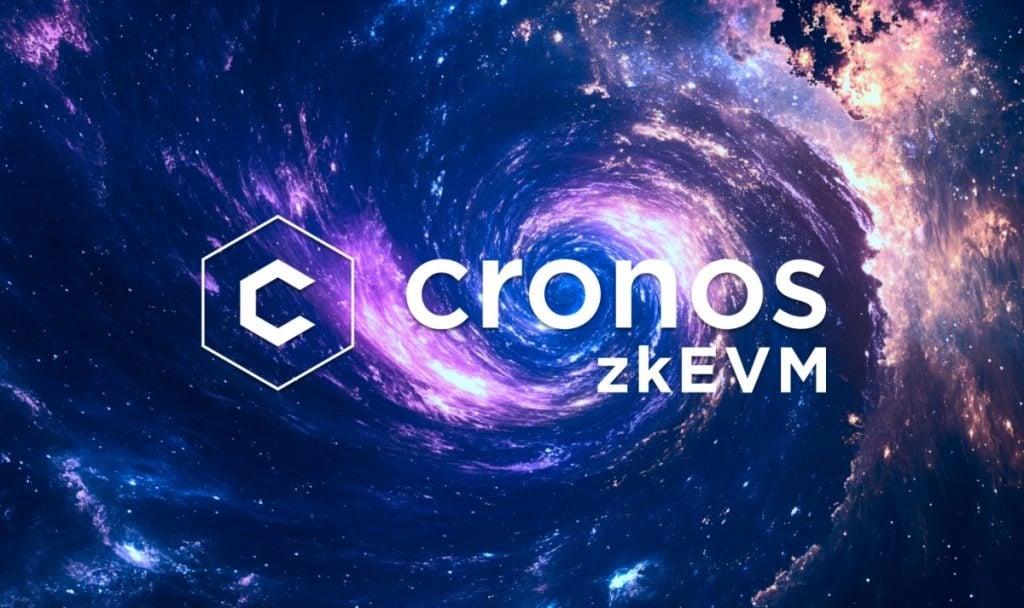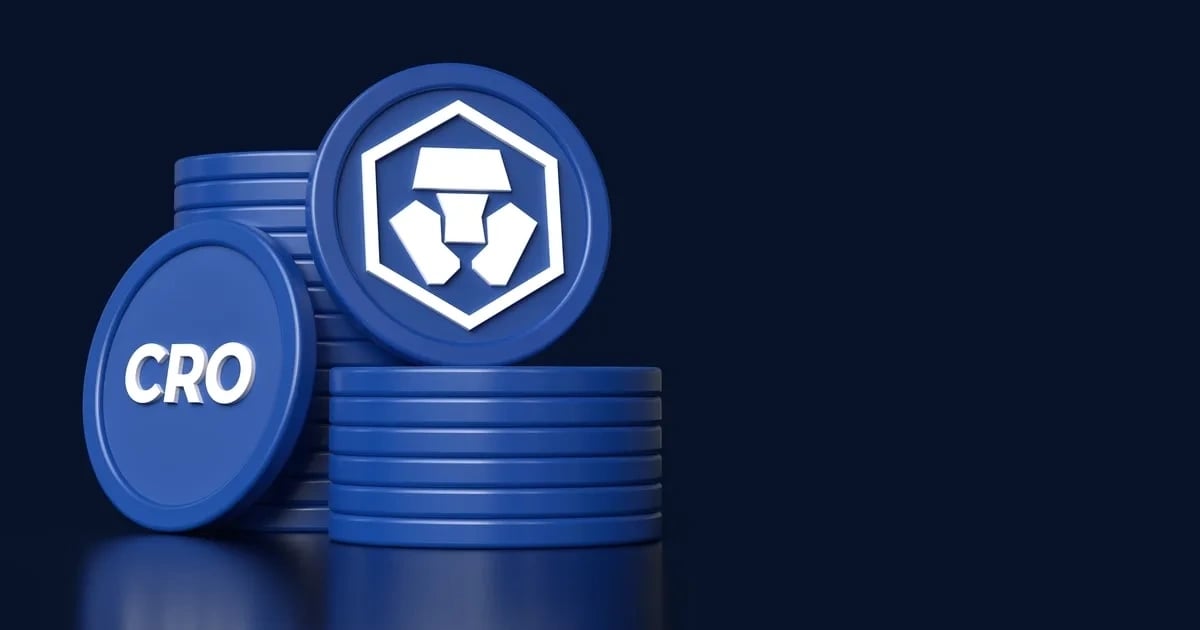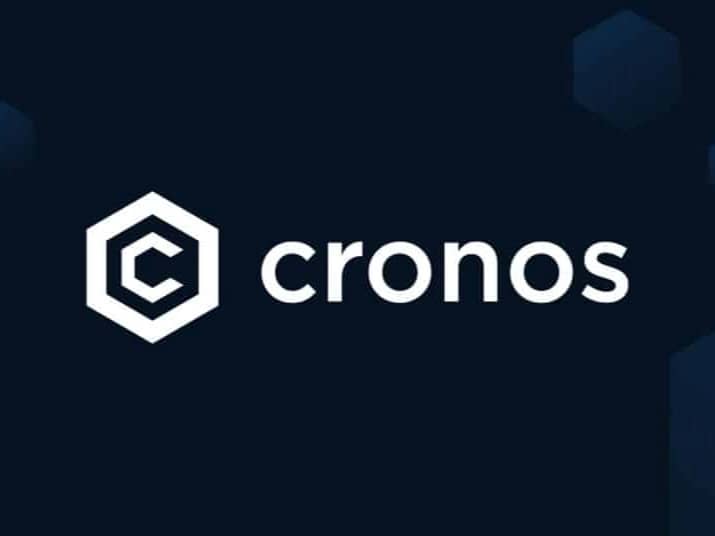위키 구독하기
Share wiki
Bookmark
Cronos (CRO)
0%
Cronos (CRO)
Cronos는 블록체인 생태계로, 탈중앙화 금융(DeFi), 게임 및 Web3 애플리케이션을 지원합니다. Cronos EVM 및 Cronos zkEVM을 포함한 여러 체인을 특징으로 합니다. CRO 토큰은 생태계 내에서 거래 및 스테이킹에 사용됩니다. [1]
개요
Cronos는 빠른 속도, 에너지 효율성 및 낮은 거래 수수료로 알려진 분산형, 오픈 소스, 퍼블릭 블록체인입니다. DeFi 및 GameFi와 같은 Web3 애플리케이션으로 크리에이터 경제를 지원하며 개방형 메타버스의 기반 역할을 목표로 합니다. Cronos의 생태계에는 Cronos zkEVM(이더리움으로 보호되는 고성능 레이어 2), Cronos EVM(이더리움 호환 및 Cosmos SDK 기반) 및 Cronos POS(Cosmos 기반 체인으로 결제 및 NFT용)의 세 가지 체인이 포함됩니다. 거래 수수료는 Cronos의 기본 통화인 $CRO 또는 CRO의 수익 창출 버전인 zkCRO로 지불됩니다. [2][3]
Cronos EVM
Cronos EVM 체인은 Cosmos SDK를 사용하여 Ethermint를 기반으로 구축되었습니다. 이는 블록체인 간 통신(IBC) 프로토콜을 지원하여 Ethereum, Cosmos 및 기타 체인과의 상호 운용성을 가능하게 합니다. 이러한 설정을 통해 사용자는 이러한 체인의 자산을 Cronos로 가져와 스마트 계약 프로토콜과 더 넓은 Ethereum 애플리케이션 생태계를 활용할 수 있습니다. 분산화와 확장 가능하고 친환경적인 처리를 균형 있게 유지하는 권한 증명(POA) 합의 메커니즘을 사용하여 Cronos는 높은 트랜잭션 처리량, 빠른 완결성 및 낮은 수수료를 목표로 합니다. 이러한 접근 방식은 Ethereum의 메인넷에 대한 보다 비용 효율적이고 탄소 중립적인 대안을 제공하여 탈중앙화 애플리케이션 및 스마트 계약에 대한 접근성을 향상시킵니다. 개발자는 DeFi, GameFi 및 Cronos의 성장에 중점을 둔 Web3 액셀러레이터 및 생태계 개발 펀드인 Cronos Labs를 통해 추가적인 지원을 받습니다. [2][3]
Cronos POS
원래 "Crypto.org Chain"이라고 불렸던 Cronos POS 체인은 $CRO 스테이킹을 주 목적으로 사용되며, Crypto.com Pay를 포함한 여러 Crypto.com 애플리케이션을 지원하는 Cosmos SDK 기반 블록체인입니다. 이 체인은 빠른 트랜잭션을 지원하도록 설계되었으며, 개인과 기업 간의 글로벌 트랜잭션을 용이하게 하는 공공 블록체인 역할을 합니다. Cronos POS 체인의 트랜잭션 수수료는 CRO로 지불됩니다. Cronos POS 체인은 또한 암호화폐 결제를 일상적인 환경에서 발전시키는 것을 목표로 하며, 기존 결제 시스템과 암호화폐 결제를 위한 안전하고 확장 가능하며 분산된 솔루션을 제공하지 못한 기존 블록체인의 한계를 해결합니다. [4]
Cronos zkEVM
2024년, Cronos Labs는 Cronos zkEVM 체인 퍼블릭 메인넷을 출시했습니다. 이는 Matter Labs(zkSync 팀), Crypto.com, VVS Finance, Fulcrom Finance 및 Veno Finance의 엔지니어링 팀과 협력하여 개발된 영지식(ZK) 레이어 2 블록체인입니다. ZK 스택을 사용하여 구축된 Cronos zkEVM은 Cronos 생태계 내에서 확장성과 더 넓은 채택을 위한 중요한 단계입니다. [5]
Cronos zkEVM의 주요 기능으로는 Cronos 사용자 및 개발자 생태계와의 통합, zkCRO(유동성 스테이킹된 CRO 버전)를 가스 토큰으로 사용하는 것이 있습니다. 이 네트워크는 이더리움 보안에서 비용 효율적인 확장성을 위해 영지식 증명 시스템을 활용하여 이더리움 확장성을 발전시키는 다른 주요 ZK 체인에 합류합니다. 또한 DeFi 내에서 "트리플 수익" 개념을 지원하여 수익 창출 암호화폐, DeFi 수익 및 로열티 포인트와 함께 가스 없는 트랜잭션을 위한 기본 계정 추상화를 결합합니다. [5]

Cronos Labs
Cronos Labs는 Cronos를 위한 Web3 스타트업 액셀러레이터 및 생태계 개발 펀드로서, Cronos 생태계 내에서 탈중앙화 금융(DeFi), 게임 및 관련 애플리케이션의 성장을 지원합니다. 원래 "Particle B"로 알려졌던 Cronos Labs는 Cronos의 기술을 활용하는 Web3 스타트업 간의 혁신을 촉진하고 생태계를 발전시키기 위해 1억 달러 규모의 펀드를 관리합니다. [7]
특징
Crono Play
Cronos Play 게이밍 SDK는 게임 플랫폼과 Cronos 네트워크 간의 통합을 가능하게 하여 향상된 플레이어 경험을 제공합니다. Cronos Play를 통해 개발자는 게임을 Cronos 네트워크에 연결하고, 게임 내 NFT 기능을 통합하고, 다양한 암호화폐 지갑을 통한 인증을 지원할 수 있습니다. 현재 Unity, Unreal 및 C++와 호환되며, SDK는 추가 게임 엔진으로 확장될 예정입니다. [8]
CRO

Cronos (CRO)는 Cronos 생태계의 유틸리티 토큰으로, Cronos 블록체인 네트워크에서 수수료를 지불하는 데 사용됩니다. 분산형 Cronos POS 네트워크는 CRO 토큰을 관리하며, 토큰 공급을 보호하고 배출량을 제어합니다. Cronos POS의 분산형 거버넌스는 거버넌스 제안을 통해 CRO 토큰 경제학을 관리합니다. 예를 들어, 2023년 거버넌스 제안은 모든 새로운 CRO 배출량의 일부를 소각하는 메커니즘을 설정했습니다. [9][10]
zkCRO
zkCRO는 Veno Finance에서 생성하고 LCRO의 지원을 받는 Cronos zkEVM 블록체인의 기본 가스 토큰입니다. 각 zkCRO 토큰은 Cronos POS 체인에 스테이킹된 CRO를 나타냅니다. zkCRO/CRO 환율은 Cronos POS 체인의 스테이킹 보상 또는 슬래싱 이벤트를 반영하여 시간이 지남에 따라 조정됩니다. zkCRO를 얻으려면 사용자는 Cronos zkEVM 브리지를 통해 이더리움에 CRO를 예치하고, 스테이킹 보상을 통해 CRO에 비해 가치가 상승하는 수익 창출 토큰인 zkCRO를 받습니다. 예치된 CRO는 Cronos POS에 LCRO로 스테이킹되며, LCRO는 IBC를 통해 Cronos EVM으로 브리징됩니다. 이 설정은 즉각적인 유동성을 제공하여 zkCRO를 상환하는 사용자가 28일의 언스테이킹 기간을 기다리지 않고 LCRO에 액세스할 수 있도록 하며, 기존 유동성 시장에서 LCRO를 판매할 수 있는 옵션을 제공합니다. 또한 LCRO에서 발생하는 검증인 보상의 50%는 Cronos EVM의 VNO 예금자에게 분배되며, LCRO에는 슬래싱 페널티에 대한 보험 기능이 포함되어 있습니다. [6]
파트너십
- Crypto.com;
- Dora Factory;
- Caldera;
- Moralis;
- Protofire;
- Chainalysis;
- Blockdaemon;
- RockX;
- Witnet;
- Gelato Network;
- SubQuery;
- OmniHub;
- Band VRF;
- CoinGecko;
- MicroSwap;
- Holdstation;
- Covalent;
- VIA Labs.
21Shares의 크로노스 ETP
2025년 5월, 21Shares는 크로노스(CRO) 암호화폐와 연동된 새로운 상장지수상품(ETP)을 출시하여 CROE 티커 심볼로 SIX 스위스 거래소에 상장했습니다. 이 상품은 CRO 토큰으로 물리적으로 뒷받침되며 자산의 시장 가치를 추적하도록 구성되어 전통적인 금융 인프라를 통해 CRO에 간접적으로 노출될 수 있도록 합니다.
ETP 출시는 크로노스 생태계의 핵심 주체인 Crypto.com이 2025년 4월에 700억 개 이상의 CRO 토큰 분류를 조정한 직후에 이루어졌습니다. 이 토큰은 2018년에서 2021년 사이에 이전 토큰 운영 중에 소각된 것으로 이전에 분류되었습니다. 이러한 조정 후 Crypto.com은 토큰이 예비 지갑에 보관되어 있으며 공식적인 변경 사항이 발표되지 않는 한 유통 공급량에서 제외될 것이라고 밝혔습니다. 재분류는 수정된 자산 추적 및 투명성 표준에 맞추기 위한 내부 회계 방법론의 변화로 제시되었습니다. 온체인 데이터는 이러한 자산이 식별 가능한 보관 주소로 이전되었음을 반영했습니다.
ETP 출시는 분산형 애플리케이션과 상호 운용 가능한 인프라를 지원하는 블록체인 네트워크를 투자 상품군에 포함하려는 21Shares의 광범위한 이니셔티브와 일치합니다. 21Shares의 제품에서 다른 블록체인 플랫폼과 함께 크로노스를 포함하면 이더리움 및 솔라나와 관련된 환경을 포함하여 다양한 블록체인 환경을 대상으로 하는 포트폴리오 내에 위치하게 됩니다.
CROE 상장은 기본 토큰의 직접적인 보관 없이 신흥 Web3 인프라에 구축된 자산에 대한 규제된 노출을 원하는 기관 및 소매 투자자에게 서비스를 제공하기 위한 것입니다. [11] [12] [13]
캐너리 캐피털의 스테이킹된 CRO ETF 제안
2025년 5월, 미국에 본사를 둔 자산 관리 회사인 캐너리 캐피털은 크로노스 블록체인 네트워크의 기본 토큰인 스테이킹된 크로노스(CRO)를 기반으로 하는 현물 상장지수펀드(ETF)를 만들기 위해 미국 증권거래위원회(SEC)에 서류를 제출했습니다. 승인될 경우, 이 상품은 규제 구조 내에서 스테이킹된 CRO의 성과를 추적하는 미국 최초의 ETF 중 하나가 될 것입니다.
_캐너리 스테이킹된 CRO ETF_라는 제안된 투자 상품은 온체인 참여를 통해 발생하는 스테이킹 보상과 함께 CRO의 시장 가격을 추적하도록 설계되었습니다. 이 서류는 펀드가 수익을 창출하기 위해 네트워크의 스테이킹 프로토콜에 참여하는 동안 CRO 토큰을 보유하기 위해 제3자 수탁자를 활용하는 메커니즘을 간략하게 설명합니다. 이러한 스테이킹 수익은 관리 및 운영 수수료를 제외하고 ETF의 가치 평가에 포함됩니다.
ETF는 규제 승인을 받아 Cboe BZX 거래소에 상장될 것으로 예상되며, 캐너리 캐피털은 펀드 관리 및 규정 준수를 감독합니다. 사용 가능한 문서에 따르면 이 구조는 다른 디지털 자산 기반 ETF, 특히 지분 증명 토큰과 관련된 ETF에 사용되는 새로운 프레임워크를 반영합니다.
서류가 공개적으로 공개된 후 CRO 주변의 거래 활동이 증가했습니다. 2025년 5월 31일, 토큰은 더 높은 거래량과 가격 변동을 기록했으며, 일부 시장 관찰자들은 이를 ETF 발표와 연결했습니다. 그러나 더 넓은 맥락에는 같은 기간 동안 암호화폐 부문 전반에 걸쳐 감소하는 조건이 포함되었습니다.
이 서류는 토큰 노출과 프로토콜 수준의 수익 메커니즘을 결합한 투자 상품을 개발하려는 자산 관리자 간의 광범위한 추세와 일치합니다. 자산 관리 산업이 암호화폐 관련 상품을 계속 탐색함에 따라 이더리움(ETH) 및 솔라나(SOL)와 같은 스테이킹 지원 자산에 대한 유사한 제안이 관찰되었습니다.
글을 쓰는 시점에서 SEC는 제안된 ETF에 대한 일정이나 결정을 제공하지 않았습니다. 이 신청의 결과는 미국 금융 시장에서 스테이킹 기반 ETF 모델에 대한 향후 규제 고려 사항에 영향을 미칠 수 있습니다. [14] [15] [16] [17]
잘못된 내용이 있나요?
